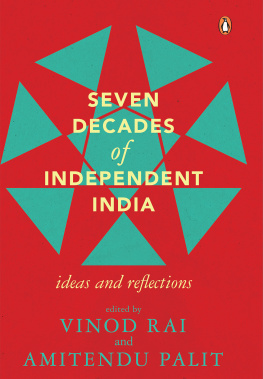A FEAST OF
VULTURES
THE HIDDEN BUSINESS OF
DEMOCRACY IN INDIA
JOSY JOSEPH
HarperCollins Publishers India
To
My daughter Supriya and her generation
May you inherit a better India
Contents
T he multi-lane highway, the metro that emerged from the bowels of the earth, posh residential colonies and glittering shopping malls, all of these receded in my rear-view mirror. The unauthorized village began where the road ended. I was on the northern fringes of Delhi.
A narrow pathway linked this large spread of single-room shanties to the outer world. It had rained recently, and little children in rags splashed in the puddles. Several men stood around aimlessly by small shops. I began what was to be a futile search.
Delhi was to play host to the Commonwealth Games (CWG) of 2010. According to company filings, several investors of a sports marketing company that was scooping up lucrative contracts in connection with the CWG were residents of this village of Karalla. I was looking for those lucky men.
The XIX CWG, with over 6,000 athletes from seventy-one countries competing in twenty-one disciplines and 272 events, was the biggest sporting meet India had ever hosted. The Central government, led by Prime Minister Dr Manmohan Singh, wanted to make it a grand coming-of-age show, with a total spend of almost Rs 50,000 crore by various estimates.
Multi-lane elevated roads were built over congested parts of Delhi, new metro lines snaked in fresh directions under and over the city, dedicated apartments for athletes rose up on the Yamuna river bed, shabby stadiums received impressive facelifts, and as the games inched closer, the ugly parts were covered with view blockers and thousands of beggars were carted away to government-run hostels outside the city. A sanitized India welcomed foreign visitors.
Jubilee Sports Technology Private Limited, many of whose promoters claimed to live in Karalla, played a critical role in getting the city ready for the games. I began to get curious about the company when I found out that it was floated by a man arrested in the past by government investigators for accepting a bribe on behalf of his late father, then a senior government official. After hours of searching, with active assistance from local residents, I still couldnt find the men behind Jubilee Sports, and returned to file a news story about the missing men.
This was, of course, far from exceptional. Over the years, almost every major financial transaction in India has been made by fictitious shareholders and proxy directors through shady deals, cash movements to tax havens and, often enough, outright criminal conspiracy. In fact, this modus operandi is not just limited to the financial world.
If you are able to summon the forensic skills necessary to detect the real powers behind fictitious shareholders and proxy voters, it will get you an intimate, revolting view of Indias underbelly, one that will swallow the sanitized, democratic India of impressive achievements and global ambitions.
This book grew out of my anguish at the staggering size and scale of that underbelly, the dilapidated state of Indian institutions and the deep immorality at the heart of our democracy. Collectively, these factors drive the majority of Indias citizens to a permanent state of helplessness, and many of them to suicide. The monotony of reading about those deaths and the insensitivity of Indias elite set me out on the path to researching this book sometime in 2007.
The rules of the game in modern India are very simple, even if the structure it creates is a horribly tangled maze. In this country, it is okay to do practically anything: use fake promoters, accept bribes, commission murders, intimidate media, manipulate courts and grab power. The one big rule: dont get caught. This book is about the reality every citizen, and all visitors, experience in myriad ways. For years, I struggled to find a structure to write about that India, and even this narrative remains an incomplete rendition of a complex web.
Every individual in that web has a stake in the perpetuation of the system, and each one of them contributes to denying poor access to instruments of democracy. The courts in the worlds largest democracy are crowded and expensive, the police corrupt and cruel, the powerful television and English-language media far too urban, and the political class busy plotting to grab power.
When you attempt to unmask the appalling double games of the people that run India and drive its economy, and put together evidence of their duplicity, they will deploy ingenious methods to silence you. It is not always crude intimidation.
I was meeting a former journalist in a coffee shop on the first floor of Delhis Khan Market, one of the most expensive retail markets in the world. The winter sun poured in through the tall glass window, making it a very pleasant afternoon. That didnt help put my companion at his ease, though. Until recently an employee of a Hindi news channel, he had just taken up a well-paying new assignment as the spokesperson of a controversial Mumbai-based billionaire.
The mild February weather had no tempering influence on national politics, where things were boiling over. Yet another scandal had erupted, and the United Progressive Alliance (UPA) government led by Dr Manmohan Singh was lurching from controversy to controversy. It was 2011, and the government still had three years to go, but there was a heavy sense of hopelessness in the air. In a few months, the country would witness a huge eruption of anger against corruption through protests in various cities.
The billionaires spokesperson had taken a two-hour flight from Mumbai, Indias commercial capital, that morning to meet me. Only days earlier, his bosss lawyers had served me and my newspaper a criminal defamation notice after I reported that he was directly in contact with the criminal underworld. We responded to the legal notice, saying we were in possession of official documents to prove our claims, and would produce them in the appropriate legal forum.
Our calm reply appeared to have prompted the business magnate to change strategy. The PR manager started with a profuse apology on behalf of his boss. It was a mistake. The boss had in fact told his legal team not to send you the notice, the young man said.
Both of us knew it wasnt a mistake but the standard operating procedure of Indias rich and famous when an article critical of them appears. Over the years, I have received dozens of notices from some of Indias biggest corporates and most powerful people. For publishing a secret audit report that accused Delhis electricity distribution companies of massive financial irregularities, one of them served a notice demanding compensation worth almost a billion dollars. A former army chief would shoot off defamation notices every time I wrote something critical of him. Mumbai Congress leader Kripashankar Singh, whose astonishing metamorphosis from vegetable vendor to multimillionaire was part of an official probe, was equally trigger-happy when it came to defamation notices. When I reported on a member of parliament (MP) who abruptly left a parliamentary committee meeting on serious security matters, which he was chairing, he sent across a notice accusing me of breaching his parliamentary privilege.
The protection of shaky reputations is a flourishing industry. There are PR consultants whose brief is to alert the rich and famous about any possible adverse reports brewing against them in newsrooms. There are lawyers drafting defamation notices and then there are those who manage the situation if nothing else works. All of them make a killing out of the potential embarrassment of a famous client.
As we settled down after the apology, the spokesperson said, He wanted me to request you not to write anything more about his links because our efforts to raise FDI (foreign direct investment) have suffered a huge setback due to your article. Their company which had manipulated its way to procuring the licence and radio spectrum to operate second-generation mobile networks, and was facing a criminal investigation was in the market to raise about Rs 3,000 crore from an investor in the Arab world.
Next page
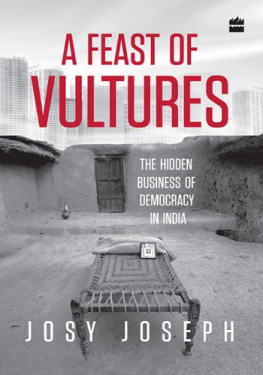
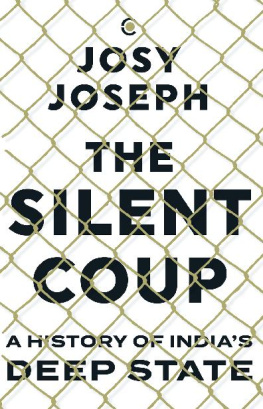
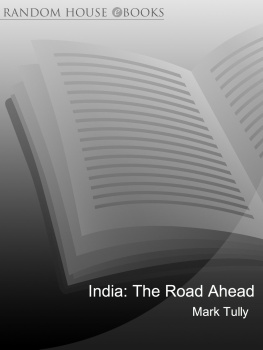


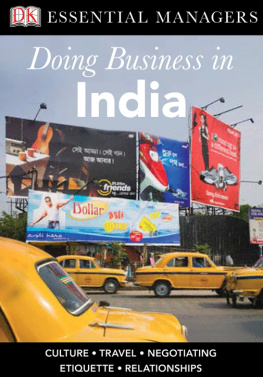
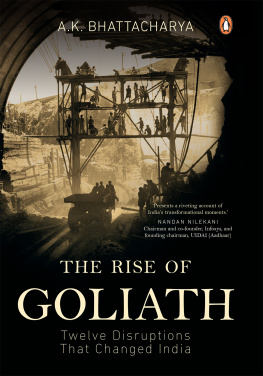
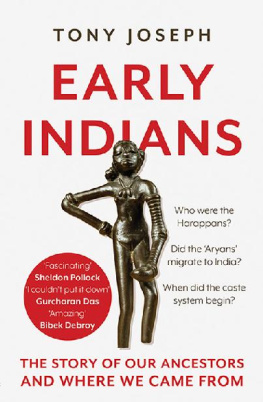
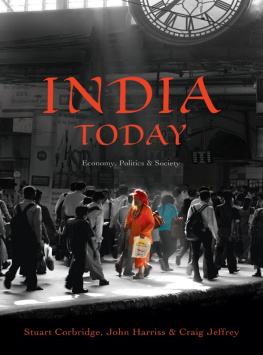
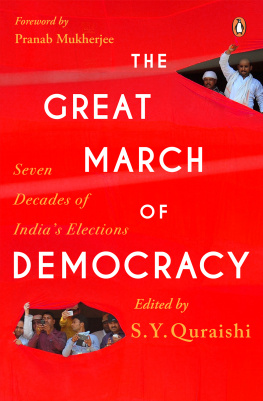
![Gandhi - Gandhi: [the true man behind modern India]](/uploads/posts/book/175484/thumbs/gandhi-gandhi-the-true-man-behind-modern-india.jpg)
